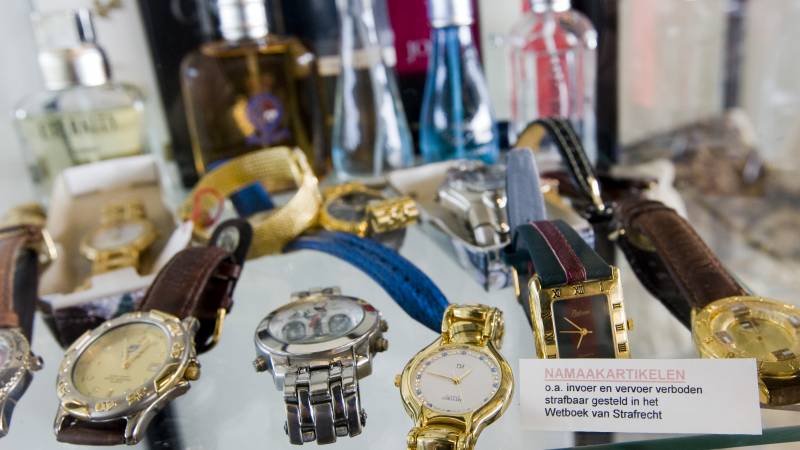React, a non-profit organization that works globally against trademark counterfeiting, has been dealing with a growing number of cases since last year. Brands such as Versace, Philips, L’Oréal and Apple are members of the organization. React also believes that there are many fakes circulating due to the Corona crisis.
“Almost all of us went shopping online during the Corona crisis. It has become a lot easier for fake merchants to display their products online. They deliver directly, usually from China, thus skipping a lot of steps in distribution where they could have been checked,” says director Ronald Prohm. “The only thing that can happen to these merchants is that their ads are cut off the internet or their shipment is intercepted by customs.”
Gucci, Rolex in Louis Vuitton
Moreover, more and more imitations are being made, especially in the textile industry, writes the trade magazine fashion business last year. When several major fashion companies withdrew their orders during the pandemic, some clothing factories turned to making imitations for rogue merchants.
In 2019, the Organization for Economic Co-operation and Development (OECD) determined that 3.3% of global trade consisted of counterfeit products. This figure was based on counterfeit goods intercepted by customs in 2016. The percentage was expected to rise steadily, but the percentage is likely to grow faster due to the Corona crisis.
According to the Organization for Economic Co-operation and Development, shoes, clothing and leather goods are the most frequently counterfeited products. British price comparison site Uswitch recently concluded from online searches that Gucci, Rolex and Louis Vuitton are the most sought-after replica brands.
Not only AliExpress
Often counterfeit products are displayed in Asian online stores, which also advertise on social media. “It’s definitely not just from AliExpress,” Broome says. “There is a lot more on new platforms like Wish, Vova, Tokopedia and on Chinese fashion websites.”
React is in discussions with these e-commerce platforms about the counterfeit goods on offer. “At first, it’s attractive for them to allow it, because it means more sellers and ads on the platform. Later, they often want to clean things up because there are so many complaints from consumers and because of legal pressure.”







